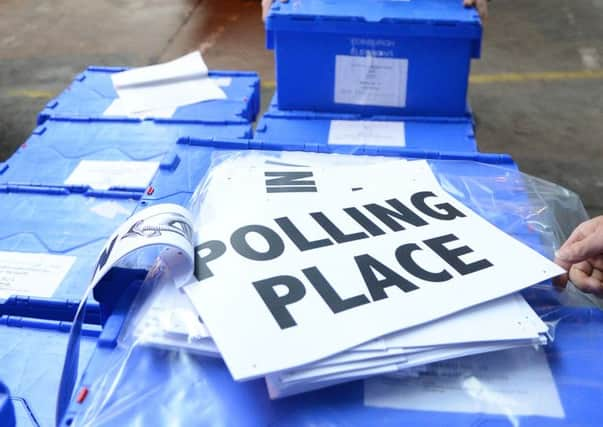Independence: More ‘don’t knows’ veer towards Yes


The findings came from the latest analysis of the British Election Survey (BES), which used two waves of data collected in March and June.
In March, the No camp was ahead by 52 per cent to 37 per cent, with the rest undecided.
Advertisement
Hide AdAdvertisement
Hide AdVery few of those voters changed their minds in the three months between the two surveys.
But those who were undecided in March and switched in June were more likely to say Yes (25 per cent) than No (16 per cent). If all 11 per cent of March’s “Don’t knows” split the same way, this would give a final result of Yes 44.6 per cent and No 53.6 per cent, said Professor Ed Fieldhouse, from Manchester University, who analysed the data.
He suggested the economy was key and that the Yes camp’s hopes of success depended on persuading Scots that independence would improve it.
“Two of the three most important factors affecting voting Yes in the first wave of the BES were how voters felt independence would affect the general economic situation in the country, and their own personal economic situation.
“Tellingly, these were also the two most important factors in determining switching to voting Yes from any other position.
“Unfortunately for the independence campaign, the percentage thinking the general economy will not be worse under independence and the percentage thinking their own economic situation will improve, remained virtually unchanged between March and June,” he said.
The pro-UK Better Together group said this was just the latest survey showing the campaign to keep Scotland in the UK spoke for the majority of Scots.
Advertisement
Hide AdAdvertisement
Hide AdIts director, Blair McDougall, said: “This is another encouraging survey which shows the majority of Scots want to keep Scotland in the UK. More and more Scots are saying no thanks to the risks of separation and believe that a No vote is in the best interests of Scotland.
“Alex Salmond has had two years to give straight answers on the pound, pensions and public services. He is running out of time and Scots are running out of patience.”
Blair Jenkins, Yes Scotland chief executive, said support for Yes was “solid”.
He added: “Despite a renewed barrage of scaremongering and relentless negativity from the No camp and Westminster government, we are in touching distance of success on 18 September.
“The greater strength of our huge grassroots campaign is of crucial importance. In a million conversations around the country, people are seeing a Yes vote as a unique opportunity to create a better Scotland.
“With independence we can make decisions that match our own needs, priorities and aspirations. We can reject Westminster austerity and tailor policies to boost economic growth and create more jobs, using our prosperity to build a better and fairer country for all.”